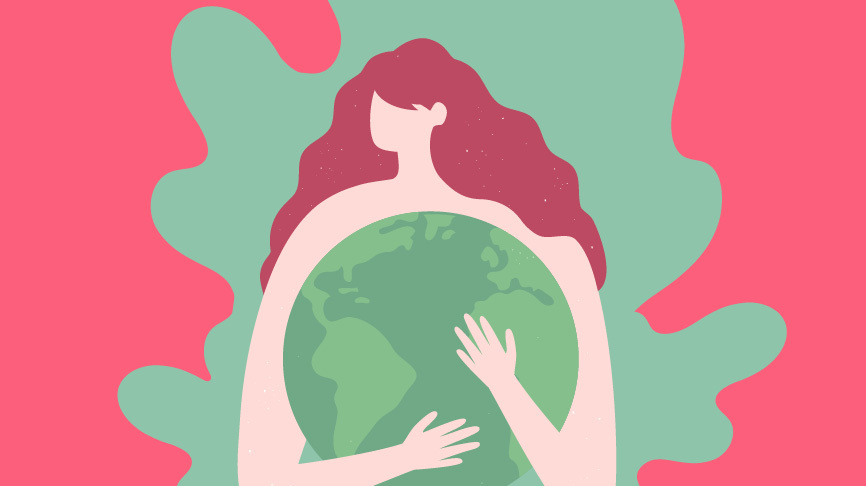Earth Day: Be Part of the Change With Sustainable Menstruation

Last week we celebrated Earth Day (April 22nd) to promote environmental protection and conservation of our planet. We use this opportunity to highlight sustainable menstruation, which has become a big part of sustainability in the last few years. Sustainable menstruation refers to using eco-friendly menstrual products that don’t harm the environment – such as menstrual cups.
Changing our daily habits, personal menstrual management, and switching to reusable products for the benefit of the environment is crucial. The numbers describing the waste caused by disposable menstrual products can be overwhelming. A recent Intimina survey of its 1030 social media followers found that 40% of respondents said they switched to a cup to reduce their personal menstrual waste.
This is a positive trend considering that the average menstruating woman uses more than 11000 disposable menstrual products in her lifetime and that waste takes hundreds of years to decompose. Many traditional plastic feminine hygiene products take over 500 years to decompose. These facts motivated our followers worldwide to change their menstrual hygiene habits and switch to healthier, environmentally friendly reusable products like menstrual cups.
How Can YOU Be Part of the Change?
Being eco-friendly means making choices and adopting practices that minimise environmental harm. You can make many small but significant changes in your daily life to be more eco-friendly. Here are some tips to help you get started:
First and Foremost – Try a Menstrual Cup
Using a menstrual cup allows people to make a significant environmental difference by ending their contribution of disposable menstrual products to the earth. To help everyone understand their menstrual waste production and its ecological impact, Intimina created the Greentimina Menstrual Waste Calculator. This simple tool calculates the amount of waste a person produces by using disposable menstrual products during their lifetime. It also estimates how much money a person will spend on those products.
Reduce Your Use of Single-Use Plastics
Plastic pollution is one of the biggest environmental challenges we face today. You can reduce your use of single-use plastics by carrying a reusable water bottle, coffee cup, and shopping bag. You can also avoid buying products with excessive packaging.
Use Public Transportation or Bike/Walk
Cars are a significant source of air pollution and greenhouse gas emissions. Use public transportation, walk, or bike to reduce your carbon footprint whenever possible.
Conserve Water
Water is a precious resource, and it is important to conserve it. You can save water by taking shorter showers, fixing leaky faucets, and using a broom instead of a hose to clean your driveway.
Choose Sustainable Fashion
Fast fashion is a significant contributor to pollution and environmental degradation. You can choose sustainable and ethical fashion options by buying clothes made from natural and sustainable materials, buying second-hand clothes, and supporting eco-friendly and ethical brands.
Reduce Energy Consumption
You can reduce their energy consumption by turning off lights and electronics when not in use, using energy-efficient appliances, and using natural light instead of artificial light.
By continuing to educate people about menstrual health and promoting reusable menstrual products, brands, organisations, and individuals can work towards a more sustainable future. Sustainable menstruation is an essential aspect of environmental protection and conservation. As we celebrate Earth Day, we need to focus on building a sustainable menstrual routine by adopting eco-friendly menstrual products. Understanding how our lifestyles impact the environment and how small changes can make a big difference is super important. Ultimately, what’s better for the planet will be better for you too!

A collective group of “lady experts” at Intimina who love sharing our personal experiences, even when they are a little too personal. We believe it’s time to start breaking down the taboos around menstruation, motherhood, and menopause, and start owning our female health.


